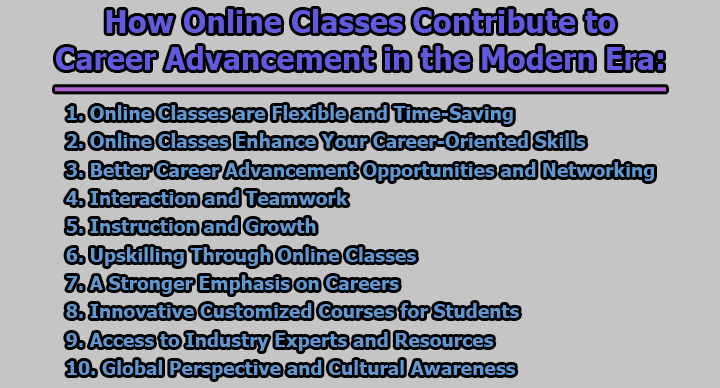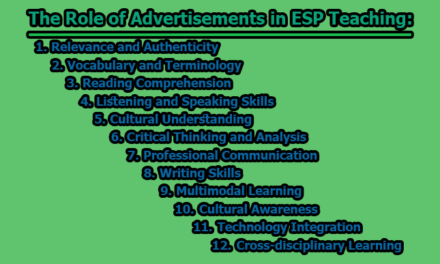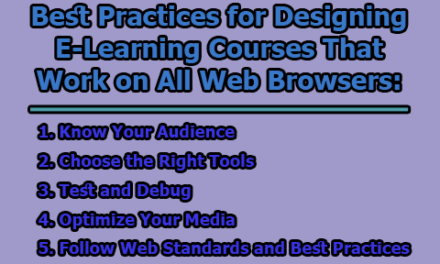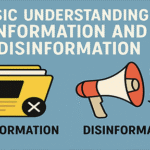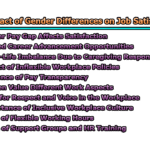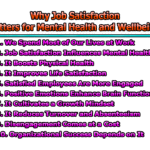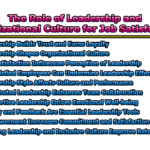How Online Classes Contribute to Career Advancement in the Modern Era:
In the rapidly evolving landscape of education and professional development, modern online classes have emerged as a powerful tool for individuals seeking to advance their careers. This shift towards online learning is driven by several factors, including the flexibility and time-saving aspects of online courses, the enhancement of career-oriented skills, improved opportunities for networking, increased emphasis on careers in course design, and innovative, customized courses tailored to individual needs. In this comprehensive guide, we will delve into each of these aspects, exploring how online classes contribute to career advancement in the modern era.
1. Online Classes are Flexible and Time-Saving:
The flexibility of online classes is a game-changer for individuals with demanding schedules, especially those juggling work, family commitments, and other responsibilities. Traditional brick-and-mortar institutions often require students to adhere to a fixed schedule, attending classes at specific times. This rigidity can pose a significant barrier for professionals looking to advance their careers or individuals managing various life commitments.
Online classes, on the other hand, provide a flexible learning environment. Participants can access course materials and lectures at their convenience, allowing them to create a study schedule that aligns with their work and personal life. This flexibility not only empowers individuals to pursue education while working full-time but also eliminates the need for time-consuming commutes to physical classrooms. As a result, online learners can optimize their time, focusing on their studies when it suits them best.
Moreover, the asynchronous nature of many online courses means that students can learn at their own pace. This accommodates different learning styles and ensures that individuals have the time they need to grasp complex concepts thoroughly. The elimination of rigid schedules and the ability to tailor learning experiences to personal timelines make online classes an attractive option for those looking to balance professional growth with other life commitments.
2. Online Classes Enhance Your Career-Oriented Skills:
Unlike some traditional educational models that may lean heavily on theoretical concepts, online classes are designed with a keen focus on practical, career-oriented skills. The curriculum is often developed in collaboration with industry experts, ensuring that the content aligns with the current needs and trends of the job market.
Modern online courses frequently incorporate real-world applications, case studies, and hands-on projects. This emphasis on practical knowledge equips learners with skills that are directly applicable to their chosen professions. For instance, a digital marketing course might include practical exercises in developing and implementing a marketing campaign, providing students with tangible skills they can use in a professional setting.
This practical approach not only enhances the relevance of the learning material but also allows individuals to build a portfolio of work that showcases their abilities to potential employers. The ability to demonstrate applied skills acquired through online classes can significantly strengthen a candidate’s position in the job market, making them more attractive to employers seeking candidates with hands-on experience.
3. Better Career Advancement Opportunities and Networking:
Online classes create a virtual learning environment that goes beyond the limitations of traditional brick-and-mortar classrooms. Through discussion forums, group projects, and collaborative activities, participants have the opportunity to interact with peers from diverse backgrounds, industries, and even geographical locations.
This diverse virtual community becomes a valuable network for career advancement. Networking is a crucial aspect of professional growth, and online classes facilitate connections that transcend physical boundaries. Participants can exchange ideas, share insights, and even explore potential job opportunities within this virtual community.
Moreover, many online platforms actively encourage networking by providing tools and features for communication, collaboration, and professional engagement. Whether through virtual meet-ups, group discussions, or collaborative projects, online learners can develop a strong network that extends their reach beyond their immediate geographic location, potentially opening doors to new career opportunities.
4. Interaction and Teamwork:
Contrary to the misconception that online learning is a solitary experience, many online courses prioritize interaction and teamwork. Virtual classrooms often incorporate discussion forums, group projects, and collaborative assignments, fostering an environment that simulates the collaborative nature of many workplaces.
Discussion forums allow participants to engage in meaningful conversations, share perspectives, and seek clarification on course content. This collaborative aspect enhances the learning experience by exposing individuals to diverse viewpoints and encouraging critical thinking.
Group projects and collaborative assignments are common components of online courses, promoting teamwork and effective communication in a virtual setting. These experiences not only contribute to a more well-rounded education but also prepare individuals for the collaborative dynamics of modern workplaces, where teamwork and effective communication are often essential for success.
5. Instruction and Growth:
Online classes provide a unique opportunity for personalized instruction and continuous growth. Many online learning platforms leverage adaptive learning technologies, which tailor the educational experience to the individual needs and progress of each learner. These systems use data and analytics to identify areas where a student may be struggling and adapt the learning materials accordingly.
This personalized approach ensures that participants receive targeted instruction and support where they need it most. For example, if a student excels in certain topics, the adaptive system may offer more advanced materials, allowing them to delve deeper into the subject matter. Conversely, if a student finds a particular concept challenging, the system may provide additional resources or alternative explanations to aid comprehension.
The result is a learning experience that is more tailored to the individual’s strengths and weaknesses, fostering a deeper understanding of the material. This personalized instruction contributes to continuous growth throughout the course, ensuring that participants are well-prepared for the challenges and opportunities they may encounter in their careers.
6. Upskilling Through Online Classes:
The dynamic nature of the job market requires individuals to stay ahead of evolving trends and technologies. Online classes offer a convenient and efficient means of upskilling, allowing individuals to acquire new skills or update existing ones without interrupting their careers.
Whether it’s learning the latest programming language, gaining proficiency in data analysis tools, or acquiring expertise in emerging fields like artificial intelligence or blockchain, online courses provide a vast array of options for professional development. The flexibility of online learning allows individuals to choose courses that align with their career goals, enabling them to acquire the skills that are in demand in their specific industry.
This commitment to upskilling is particularly crucial in industries where technology and methodologies rapidly evolve. By staying current with industry trends through online classes, individuals can position themselves as valuable assets to employers, demonstrating a proactive approach to professional development and a willingness to adapt to the changing demands of their field.
7. A Stronger Emphasis on Careers:
Modern online courses are increasingly designed with a strong emphasis on preparing individuals for the workforce. Recognizing the importance of aligning education with career goals, many online programs collaborate with industry experts and professionals during course development.
This collaboration ensures that the content is not only relevant but also directly applicable to the skills and knowledge demanded by employers. Online courses often incorporate industry-specific case studies, practical exercises, and real-world scenarios, providing a bridge between academic learning and professional application.
As a result, individuals completing online courses find themselves better equipped for the challenges of the workplace. The practical knowledge gained through these courses translates into a smoother transition from education to employment, making online classes a strategic choice for those seeking to enhance their career prospects.
8. Innovative Customized Courses for Students:
Online learning platforms leverage technology to offer innovative and customized courses tailored to the needs and preferences of individual learners. Adaptive learning systems, AI-driven assessments, and personalized learning paths allow students to progress through the material at their own pace, ensuring a more effective and personalized educational experience.
For instance, adaptive learning systems can identify a student’s strengths and weaknesses, adjusting the difficulty of questions or providing additional resources accordingly. This customization caters to diverse learning styles and allows individuals to focus on areas where they need the most improvement, promoting a deeper understanding of the material.
The ability to customize the learning experience is particularly beneficial for adult learners who may have different learning preferences and varied levels of prior knowledge. By adapting to individual needs, online courses can provide a more engaging and effective learning experience, enhancing the overall educational journey.
9. Access to Industry Experts and Resources:
Online classes often provide unparalleled access to industry experts and resources that might be challenging to access in traditional educational settings. Many online courses feature guest lectures, webinars, and virtual conferences with renowned professionals actively engaged in the field.
These interactions offer students insights into current industry practices, trends, and challenges, enriching their understanding of the subject matter. Additionally, online platforms typically provide extensive digital resources, including research papers, case studies, and practical examples. This wealth of information enhances the depth and breadth of the learning experience, providing students with a comprehensive understanding of their chosen field.
Access to industry experts not only fosters a deeper connection between academic learning and real-world applications but also provides students with valuable networking opportunities. Engaging with professionals in the field can lead to mentorship, internships, or even job opportunities, further solidifying the bridge between education and career advancement.
10. Global Perspective and Cultural Awareness:
Virtual classrooms in online courses transcend geographical boundaries, creating an environment that brings together participants from various parts of the world. This global perspective enhances cultural awareness and exposes individuals to diverse viewpoints and approaches.
Interacting with classmates from different cultural backgrounds fosters a more inclusive and well-rounded educational experience. It encourages individuals to consider different perspectives, challenge assumptions, and adapt to diverse communication styles—a crucial skill in today’s interconnected global economy.
This exposure to a global community not only broadens the horizons of online learners but also prepares them for careers in multinational organizations or industries with diverse clientele. The ability to navigate cultural nuances and communicate effectively across borders is a valuable skill that can significantly contribute to career advancement in today’s globalized professional landscape.
In conclusion, modern online classes offer a lot of opportunities for career advancement. The flexibility, emphasis on practical skills, networking possibilities, and innovative course designs make online learning a compelling option for individuals seeking to propel their careers forward. As the educational landscape continues to evolve, online classes stand at the forefront, providing a dynamic and responsive approach to professional development. By embracing the advantages of online learning, individuals can position themselves for success in an ever-changing and competitive job market.

Assistant Teacher at Zinzira Pir Mohammad Pilot School and College

